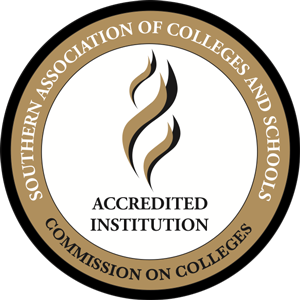general education
General Education Requirements
Alabama State University general education requirements is a substantial component of each undergraduate degree programs and is required of all students to ensure breadth of knowledge is acquired. Colleges and/or departments may require additional or more specific course work for their programs than are listed throughout the catalog.
The courses in the ASU general education core are designed to expose students to a broad liberal education. These courses also focus on ensuring that all students acquire competence in basic academic skills (reading, writing, critical thinking) in preparation for further study toward the degree. In the general studies courses, students begin working with the fundamentals of research, and they are introduced to service-learning concepts and projects that advanced courses will build upon in their specialized degree programs.
The Alabama Articulation and General Studies Committee (AGSC) developed a statewide freshman and sophomore level general studies (“general education”) curriculum to be taken at all colleges and universities. The AGSC general studies curriculum core includes study in the areas of written composition, humanities and fine arts, natural sciences and mathematics, and history, social, and behavioral sciences.
|
Curriculum Area |
Required Hours |
|
Written Composition |
6 |
|
Humanities And Fine Arts (AGSC AREA II) |
12 |
|
Natural Sciences And Mathematics (AGSC AREA III) |
|
|
Natural Sciences Mathematics |
8 3 |
|
History, Social And Behavioral Sciences (AGSC AREA IV) |
12 |
|
Orientation (Required Of All Undergraduates) |
1 |
|
Total Core Curriculum Hours |
42 |
There are four learning domains with specific student competencies to align with the updated rationale to provide students with opportunities to acquire and reinforce key intellectual competencies as shown in Figure 1. The ASU General Education Curriculum Model connects the four ASU Core areas: Qualitative Literacy, Quantitative Literacy, Scientific Reasoning, and Technological Literacy. Embedded in this model are the required courses in Written Composition, Humanities and Fine Arts, Natural Sciences and Mathematics, and History, Social, and Behavioral Sciences.
Figure 1: Alabama State University General Education Competencies

Qualitative Literacy-Students will be able to contextualize and integrate historical, contemporary knowledge in written and verbal communication mediums.
Writing - Students will be able to demonstrate the ability to write competently.
History- Students will be able to understand the development of Western civilization and other societies and the influence of sociological, psychological and economic principles on human thought and behavior.
Humanities and Fine Arts: Students will demonstrate an understanding of arts and humanities.
Quantitative Literacy-Students will be able to demonstrate knowledge of mathematical concepts.
Scientific Reasoning - Students will demonstrate the ability to understand, construct, and evaluate relationships in the natural sciences.
Technological Literacy- Students will demonstrate basic computer skills.

